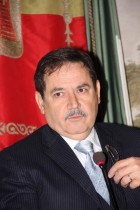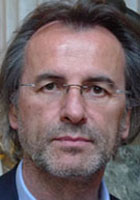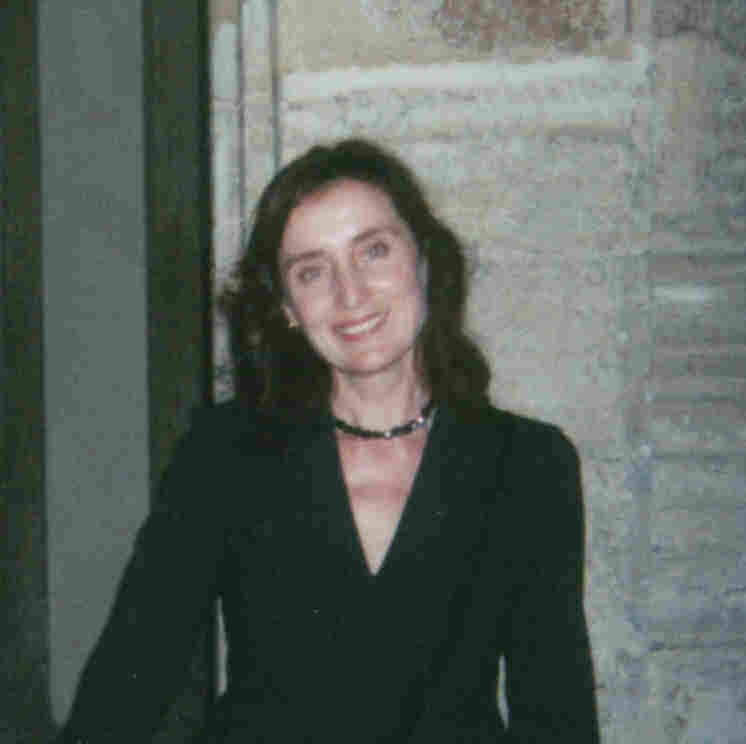Studying at the University of Verona
Here you can find information on the organisational aspects of the Programme, lecture timetables, learning activities and useful contact details for your time at the University, from enrolment to graduation.
Academic calendar
The academic calendar shows the deadlines and scheduled events that are relevant to students, teaching and technical-administrative staff of the University. Public holidays and University closures are also indicated. The academic year normally begins on 1 October each year and ends on 30 September of the following year.
Course calendar
The Academic Calendar sets out the degree programme lecture and exam timetables, as well as the relevant university closure dates..
| Period | From | To |
|---|---|---|
| Sem. 1A | Oct 4, 2010 | Nov 14, 2010 |
| Sem. 1B | Nov 15, 2010 | Jan 16, 2011 |
| Sem. 2A | Feb 21, 2011 | Apr 10, 2011 |
| Sem. 2B | Apr 11, 2011 | Jun 5, 2011 |
| Session | From | To |
|---|---|---|
| Sessione invernale (A.A. 2009-2010) | Jan 17, 2011 | Feb 20, 2011 |
| Sessione estiva (esami sospesi dal 5 all'8 luglio) | Jun 6, 2011 | Jul 31, 2011 |
| Sessione autunnale | Sep 1, 2011 | Sep 30, 2011 |
| Session | From | To |
|---|---|---|
| Sessione estiva | Jul 5, 2011 | Jul 7, 2011 |
| Sessione autunnale | Nov 15, 2011 | Nov 17, 2011 |
| Sessione invernale | Mar 13, 2012 | Mar 15, 2012 |
| Period | From | To |
|---|---|---|
| All Saints | Nov 1, 2010 | Nov 1, 2010 |
| National holiday | Dec 8, 2010 | Dec 8, 2010 |
| Christmas holidays | Dec 22, 2010 | Jan 6, 2011 |
| Easter holidays | Apr 22, 2011 | Apr 26, 2011 |
| National holiday | Apr 25, 2011 | Apr 25, 2011 |
| Festa dei lavoratori | May 1, 2011 | May 1, 2011 |
| Local holiday | May 21, 2011 | May 21, 2011 |
| National holiday | Jun 2, 2011 | Jun 2, 2011 |
| Summer holidays | Aug 8, 2011 | Aug 15, 2011 |
Exam calendar
Exam dates and rounds are managed by the relevant Humanistic Studies Teaching and Student Services Unit.
To view all the exam sessions available, please use the Exam dashboard on ESSE3.
If you forgot your login details or have problems logging in, please contact the relevant IT HelpDesk, or check the login details recovery web page.
Should you have any doubts or questions, please check the Enrollment FAQs
Academic staff
 mario.dalcorso@univr.it
mario.dalcorso@univr.it
Livieri Paolo
 paolo.livieri@univr.it
paolo.livieri@univr.it
 annamaria.piussi@univr.it
annamaria.piussi@univr.it
 rita.severi@univr.it
rita.severi@univr.it
Study Plan
The Study Plan includes all modules, teaching and learning activities that each student will need to undertake during their time at the University.
Please select your Study Plan based on your enrollment year.
1° Year
| Modules | Credits | TAF | SSD |
|---|
Un insegnamento a scelta tra i seguenti2° Year activated in the A.Y. 2011/2012
| Modules | Credits | TAF | SSD |
|---|
| Modules | Credits | TAF | SSD |
|---|
Un insegnamento a scelta tra i seguenti| Modules | Credits | TAF | SSD |
|---|
Legend | Type of training activity (TTA)
TAF (Type of Educational Activity) All courses and activities are classified into different types of educational activities, indicated by a letter.
Methods of historical research (2010/2011)
Teaching code
4S00814
Teacher
Coordinator
Credits
6
Language
Italian
Scientific Disciplinary Sector (SSD)
M-STO/01 - MEDIEVAL HISTORY
Period
Sem. 2A dal Feb 21, 2011 al Apr 10, 2011.
Learning outcomes
To improve the approach to past and present history through the study of the instruments and of the methods of historical research, and through analysis of the complex problem of the Italian National Identity.
Program
Topics:
1) The word History. The reasons to study History.
2) The consideration of the historical research in contemporary Italy.
3) The historical narration. Historical novels and pictures.
4) A brief survey of Historiography. Today New History.
5) The historical research: the methods.
6) Historical sources. Extrasources.
7) Bibliography, Historiography and Philosophy of History.
8) Archives, Museums, Libraries for the study of History.
9) The Italian Character.
10) The idea of Italy in the Middle Ages. Dante’s, Purgatory, canto VI.
11) Francesco Petrarca
12) The Middle Ages myths in the Romanticism
13) Manzoni and the Middle Ages
14) The struggle for freedom of Medieval Commune in the Risorgimento
15) The mediaeval legacy in today’s Italian identity.
Bibliography. Required readings:
1) P. GOLINELLI, Leggere, scrivere, insegnare storia, Pàtron, Bologna 2010
2) E. GALLI DELLA LOGGIA, L’identità italiana, Il Mulino, Bologna 1998.
Stundents who can’t attend to the lessons have to read:
P. GOLINELLI, Medioevo romantico italiano, Mursia, Milano 2011.
If the publisher couldn’t print this book in time, students who don’t attend to lessons can ask the dossier of the course to the teacher, during the office hour.
Examination Methods
Written test “in itinere”, and oral final exam.
Type D and Type F activities
Modules not yet included
Career prospects
Module/Programme news
News for students
There you will find information, resources and services useful during your time at the University (Student’s exam record, your study plan on ESSE3, Distance Learning courses, university email account, office forms, administrative procedures, etc.). You can log into MyUnivr with your GIA login details: only in this way will you be able to receive notification of all the notices from your teachers and your secretariat via email and soon also via the Univr app.
Student mentoring
Graduation
Documents
| Title | Info File |
|---|---|
|
|
pdf, it, 99 KB, 13/10/23 |
|
|
pdf, it, 101 KB, 10/04/24 |
List of theses and work experience proposals
| theses proposals | Research area |
|---|---|
| Psicoanalisi | Psychology - Psychology, Psychoanalysis |
Gestione carriere
Linguistic training CLA
Practical information for students
Documents
| Title | Info File |
|---|---|
|
|
pdf, it, 325 KB, 02/05/23 |
|
|
pdf, it, 212 KB, 02/05/23 |
|
|
pdf, it, 131 KB, 02/05/23 |
Stage e Tirocini
Per le altre attività formative (crediti F) sono previsti 9 cfu (pari a 225 ore) da acquisire solamente attraverso l’attività di tirocinio obbligatoria, a sua volta suddivisa in:
- tirocinio indiretto (1 cfu: 25 ore di frequenza obbligatoria in università per il 75%) in preparazione dell’attività formativa sul campo;
- tirocinio diretto (8 cfu), da svolgersi presso enti convenzionati.
L’ordinamento didattico della LM in Scienze pedagogiche prevede che il tirocinio indiretto a frequenza obbligatoria si svolga in università per il 75% nel secondo anno (1 CFU: 25 ore).
Il tirocinio indiretto consiste in un accompagnamento iniziale delle/degli studenti da parte dei tutor attraverso un percorso di formazione della durata di 25 ore.
La finalità di questo percorso è quella di preparare le/gli studenti alla particolare forma di apprendimento costituita dal tirocinio, dotandoli di conoscenze e strumenti adeguati a osservare, comprendere e rielaborare criticamente l’esperienza di tirocinio nei servizi educativi e ad affrontare il tirocinio negli enti con metodo e consapevolezza.
Il percorso, da attuare in gruppi da 20-25 persone sotto la supervisione di un tutor proveniente dal mondo professionale di educatori e pedagogisti, risponde alle esigenze costantemente espresse sia dalle/dagli studenti stessi sia dalle parti sociali che dai referenti degli enti convenzionati.
Nuove Linee Guida per il tirocinio di Scienze pedagogiche.
- Tutte le informazioni in merito agli stage per futuri studenti sono disponibili alla pagina Stage e tirocini.
- Tutte le informazioni in merito agli stage per studenti iscritti sono pubblicate in MyUnivr - come fare per - stage e tirocini.
- Tutte le informazioni in merito agli stage per le aziende sono disponili alla pagina Stage e tirocini per azienze.
 045 8028727
045 8028727







